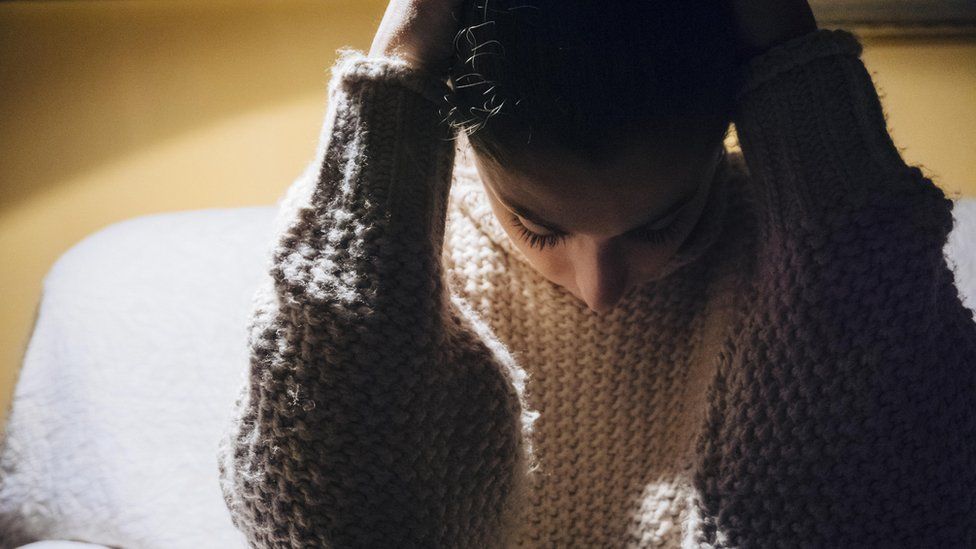
The government insists it will ban so-called conversion therapy for gay or bisexual people in England and Wales - but not for transgender people.
It comes hours after it had said it would drop the ban entirely.
The announcement that it would explore "non-legislative measures" to prevent the practice prompted a furious response from LGBT groups and many MPs.
According to NHS England, conversion therapy tries to change someone's sexual orientation or gender identity.
A senior government source has told the BBC the ban will feature in the next Queen's Speech.
But hours earlier a government spokesperson said it had decided to drop the ban and instead "proceed by reviewing how existing law can be deployed more effectively".
It would also explore "other non-legislative measures" to prevent conversion therapy, they added.
But news that the government is now only planning to ban conversion therapy for cisgender people - those whose gender identity is in-line with their biological sex - has been met with criticism from some MPs and charities.
The Rainbow Project, said any ban that didn't include transgender people was "not a real ban".
Labour MP Nadia Whittome tweeted: "Boris Johnson has U-turned again after the strength of feeling and will ban conversion therapy for cisgender lesbian, gay and bisexual people but not trans people. It's still not good enough. LGB comes with the T, and the Tories are not on our side."
Some gender critical groups had fought for the ban not to include conversion therapy experienced by transgender people.
The government's national LGBT survey in 2017 found that transgender people were twice as likely to have been offered conversion therapy than their gay and bisexual counterparts.
More than 108,000 people responded to the consultation, which led Theresa May's government to announce plans to ban conversion therapy.
Josh Parry, BBC LGBT producer, says any policy relating to transgender peoples' lives is always the subject of fierce public and political debate, so the chances that a second U-turn will quieten things down are slim.
Reacting to the initial announcement of a total drop of the ban, LGBT charity Stonewall tweeted that it was "devastating to hear that the UK government is again breaking its promise to our communities".
It called on the governments of Wales and Scotland to end the practice in "their own jurisdictions", saying "LGBTQ+ people in the UK deserve better than this".
Jayne Ozanne, chair of the #BanConversionTherapy coalition and conversion therapy survivor told the BBC that the news "emboldens perpetrators and allows them to act with impunity".
"It lets them know that the government is on their side and does not want to hold them to account," she said.
She called it a betrayal of those who bravely told their stories in the hope the prime minister would act. "I do not understand why he is throwing young LGBT people under the bus," she said.
Simon Calvert, deputy director at The Christian Institute, had welcomed the announcement saying that a ban could breach the European Convention on Human Rights.
"The government committed to outlawing 'conversion therapy' without any clear view on what that term meant, whether legislation was needed, or what it would look like," he said.
"Activists wanted the ban to take sides in a theological dispute over the interpretation of scripture. They even specifically called for 'gentle, non-coercive prayer' to be criminalised. This would have made it the most religiously repressive UK law in centuries."
Mr Calvert said "many thousands of concerned Christians" had contacted MPs about the issue and responded to the consultation.
Speaking to BBC Radio 4's Today programme on Friday, Nikki da Costa, a former director of Legislative Affairs at No 10, said elements of the legislation, particularly relating to gender identity for under 18s and talking therapy, would have had "profound consequences for children struggling with gender dysphoria".
"Doctors, therapists and parents would be deterred from exploring with a child any feelings of what else may be going on for fear of being told they're trying to change a child's identity" she said, which was "deeply concerning."
'Absolutely abhorrent'
In 2018, Theresa May's government promised to end conversion therapy as part of its LGBT Action plan.
The promise was brought forward by Boris Johnson. In July 2020, he said the practice was "absolutely abhorrent" and "[had] no place in this country".
In May 2021, the Queen's Speech reiterated that measures would be "brought forward" to ban it.
Liz Truss, in her role as minister for women and equalities, said after the Queen's Speech: "As a global leader on LGBT rights, this government has always been committed to stamping out the practice of conversion therapy."
But she also stated that the ban would only happen following a consultation seeking "further views from the public and key stakeholders".
Some groups, including the Evangelical Alliance, which says it represents 3,500 churches, say a ban on conversion therapy could restrict religious freedoms. However, many other religious leaders support a ban.
LGBT+ Conservatives, which is affiliated to the party, said it was "shocked and disappointed" at the initial decision to drop the ban and said they would be writing to the prime minister.
"We have been clear in our campaigning from the start; this must be a ban in legislation. Anything else does not cut it and never will," the group said in a tweet.
https://news.google.com/__i/rss/rd/articles/CBMiJmh0dHBzOi8vd3d3LmJiYy5jby51ay9uZXdzL3VrLTYwOTQ3MDI40gEqaHR0cHM6Ly93d3cuYmJjLmNvLnVrL25ld3MvdWstNjA5NDcwMjguYW1w?oc=5
2022-04-01 07:22:42Z
1350750004
Tidak ada komentar:
Posting Komentar